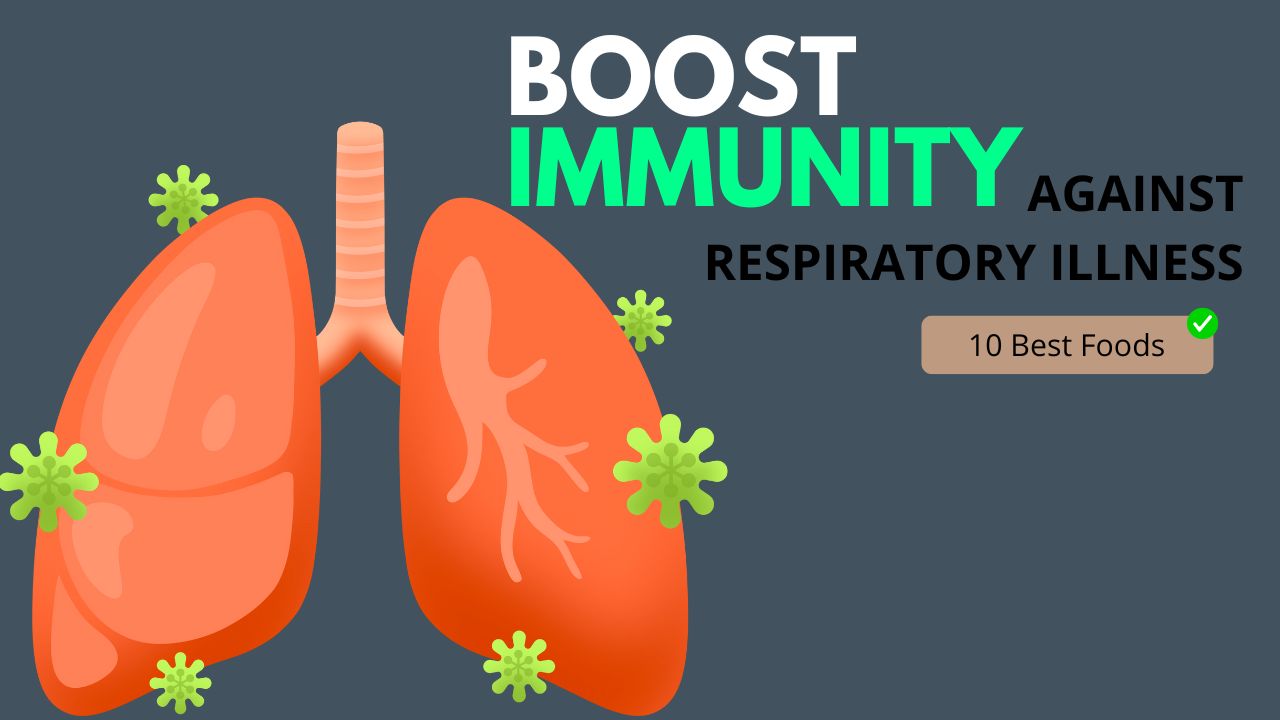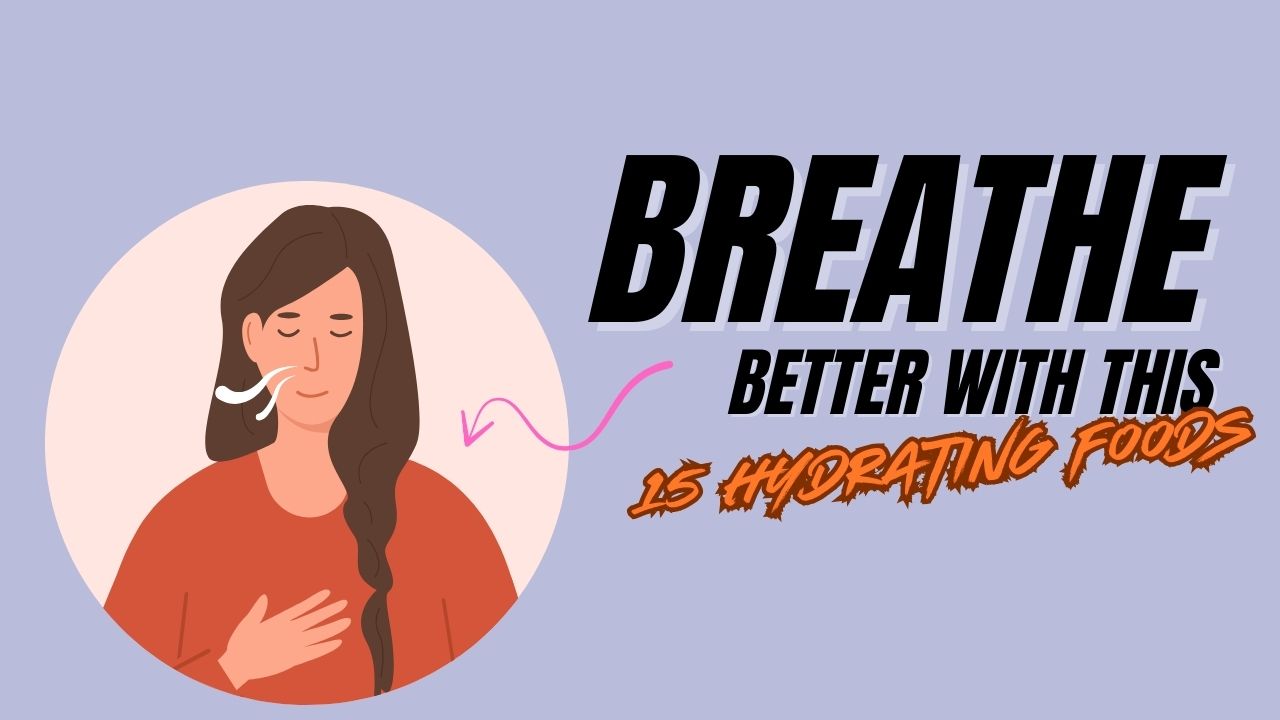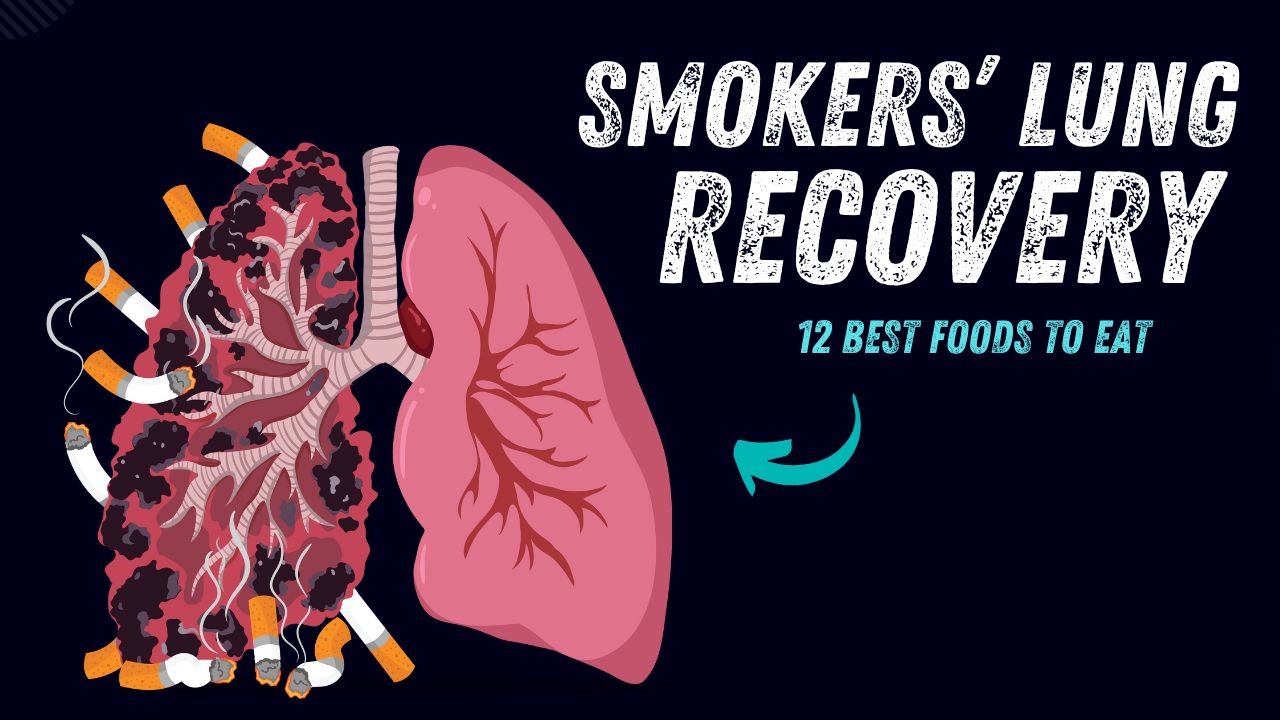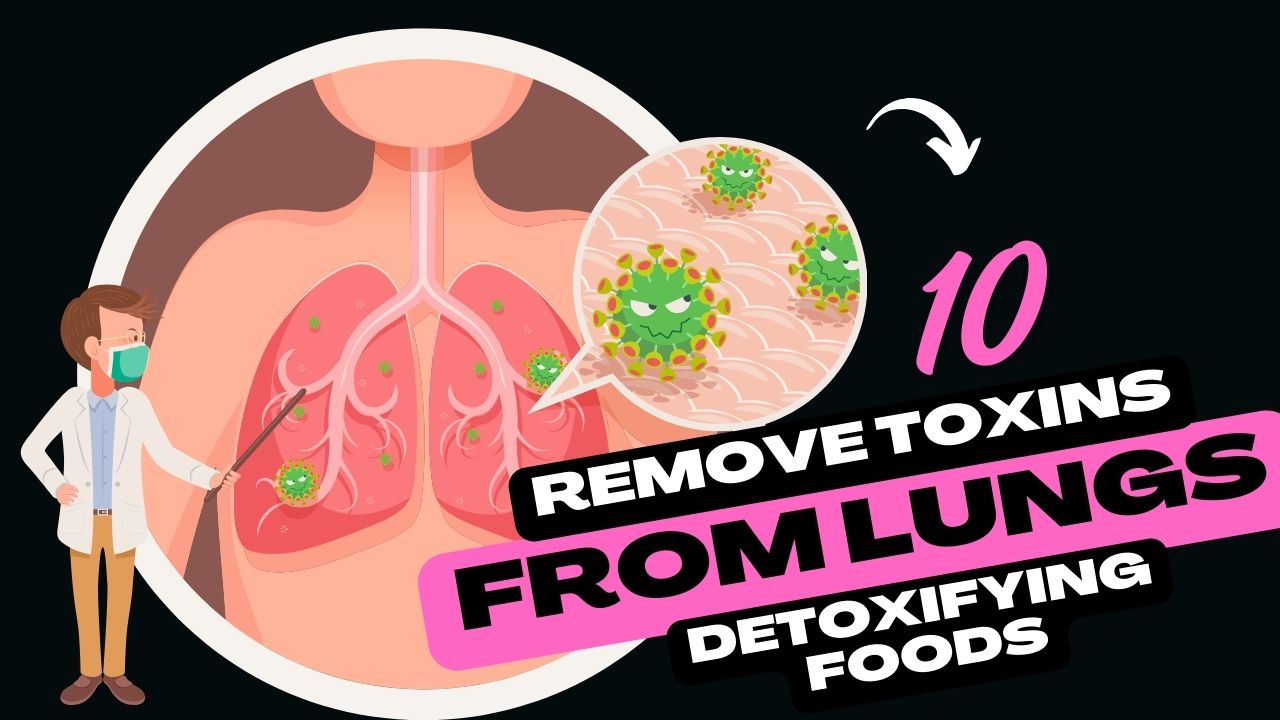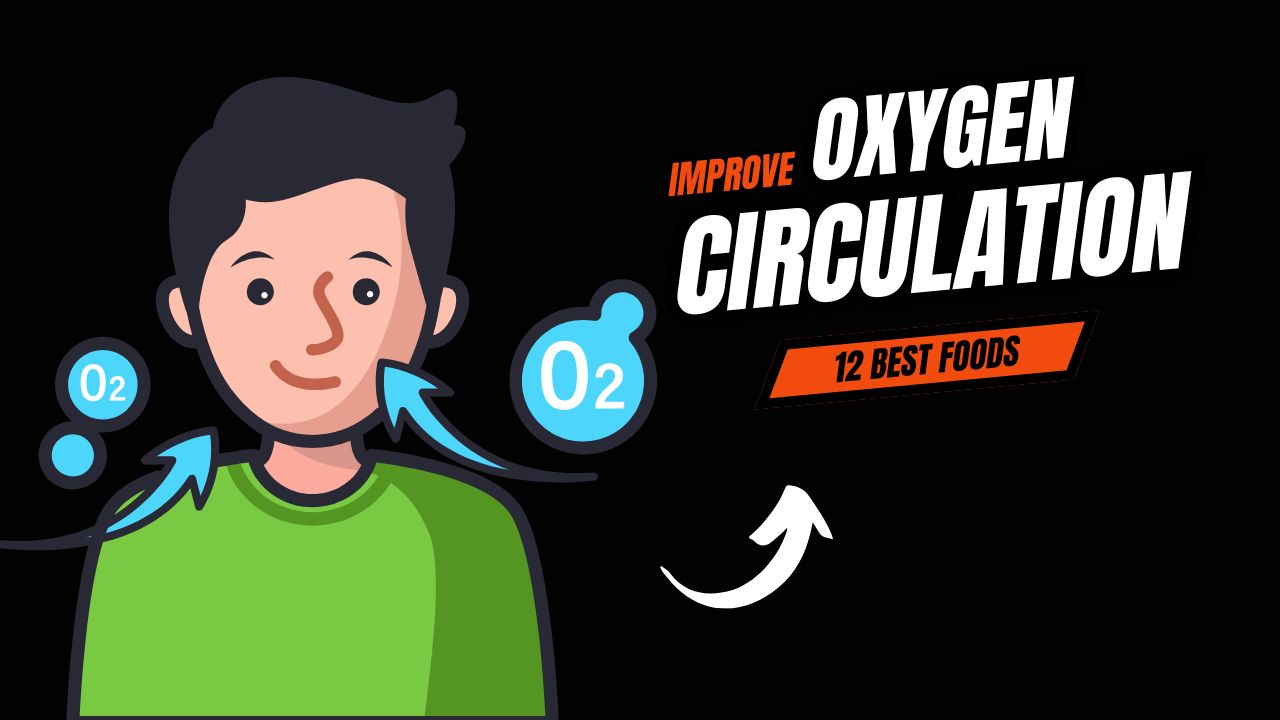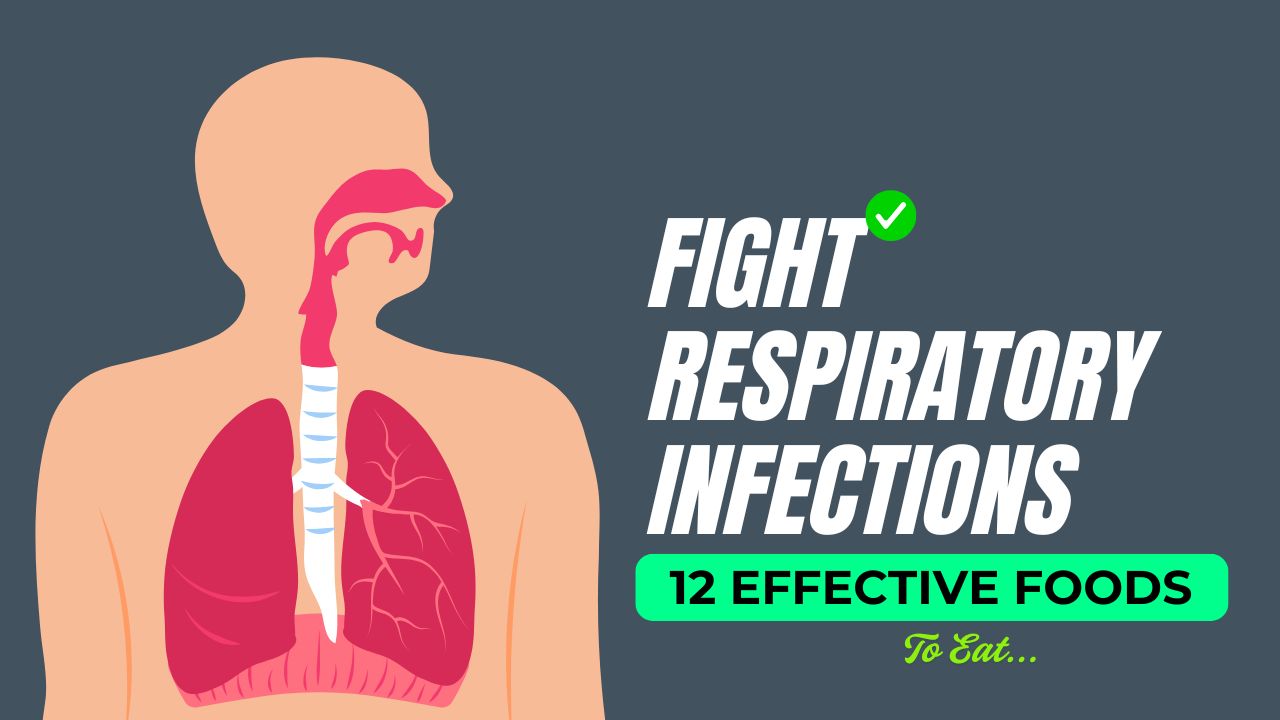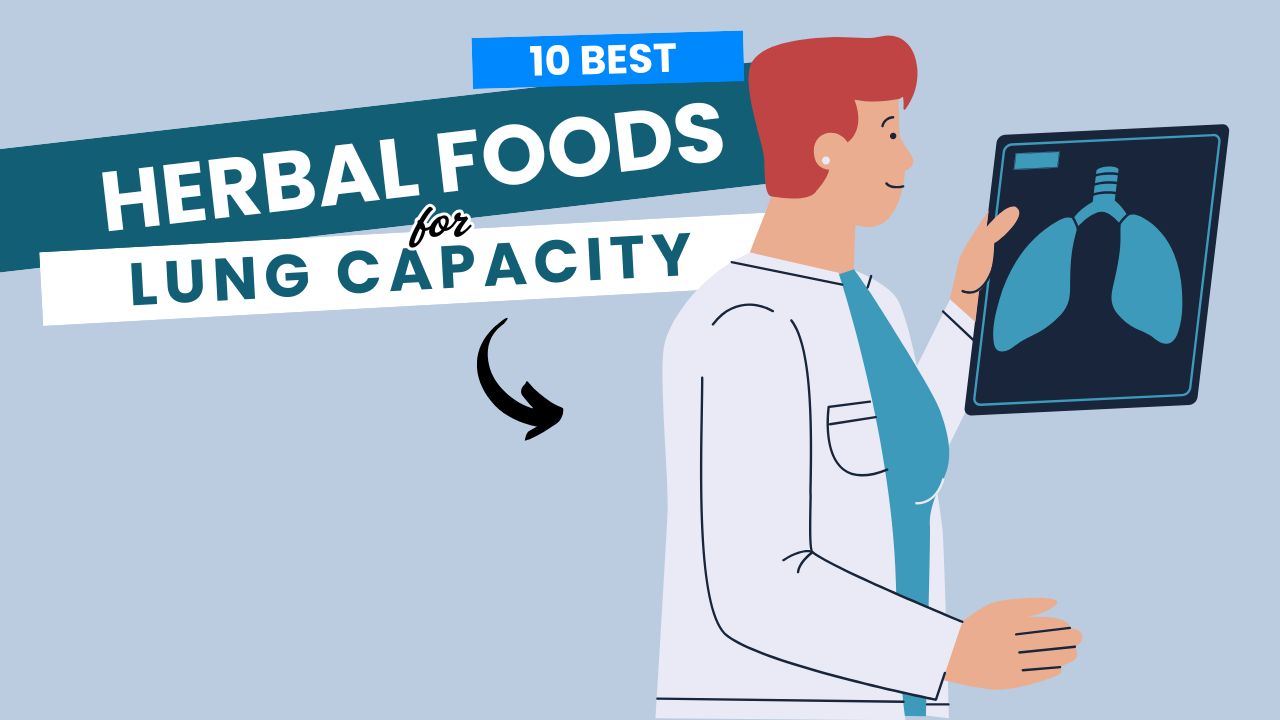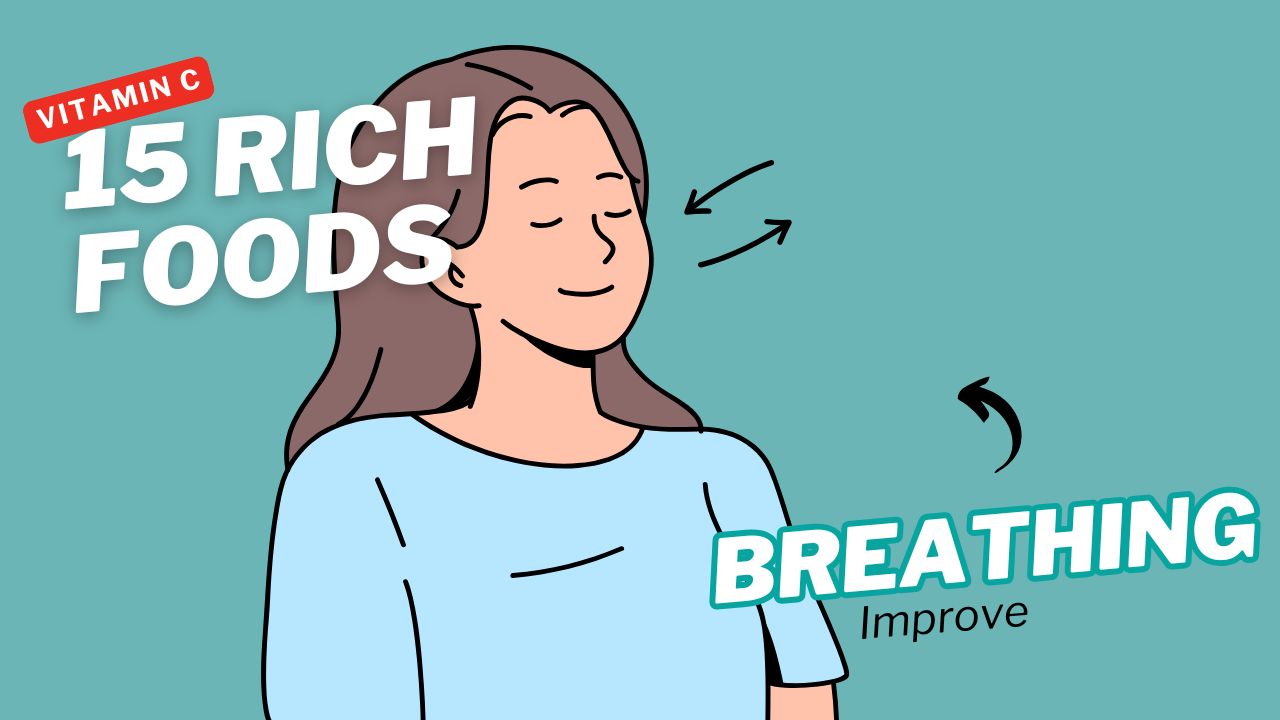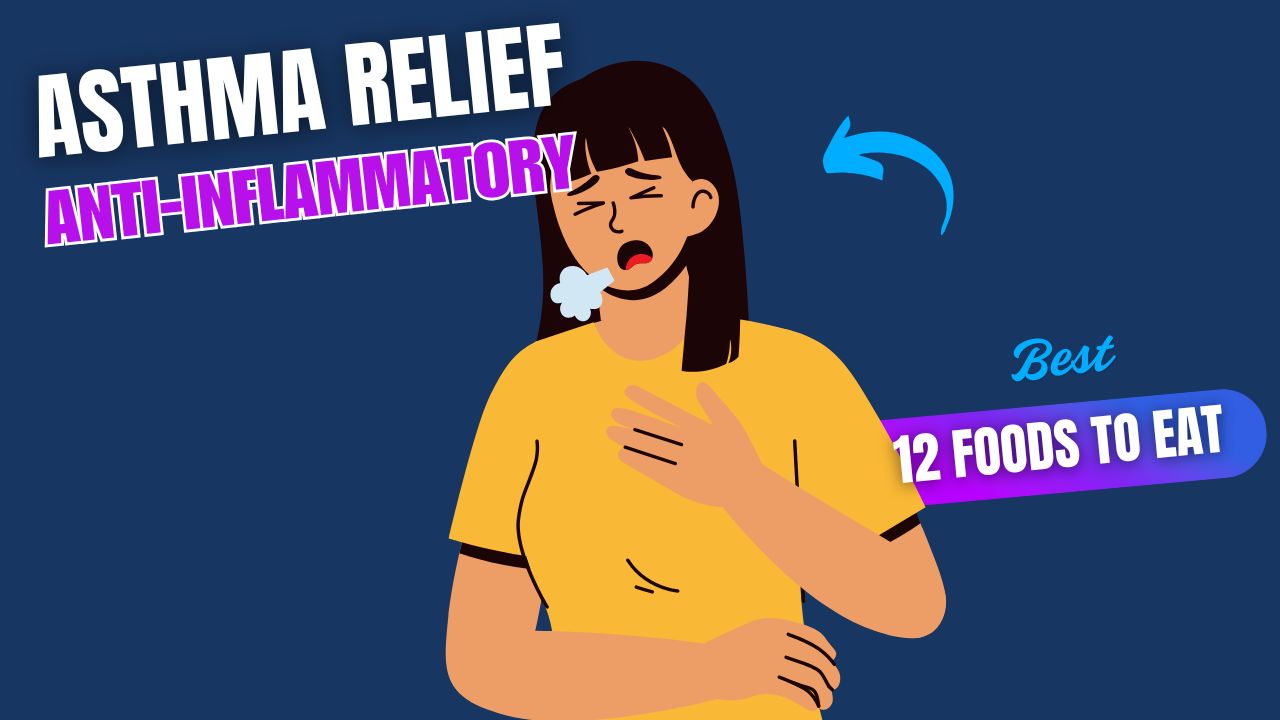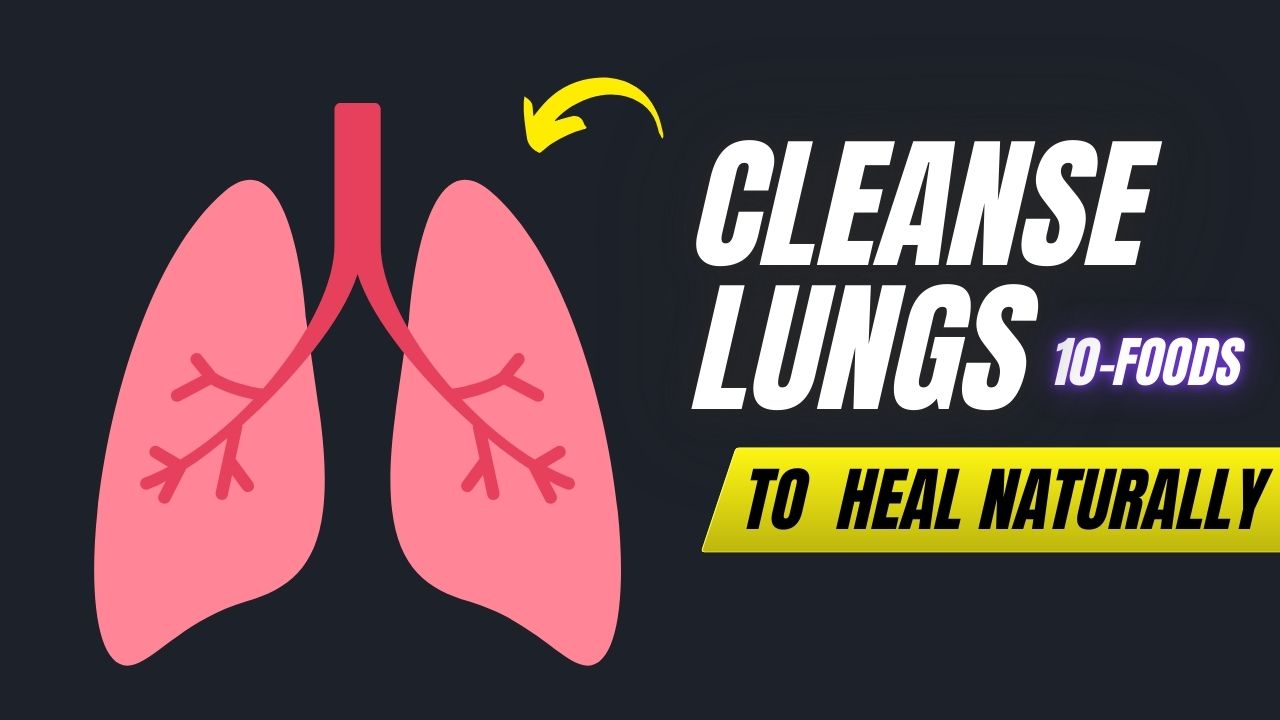Do you know that your blood vessels are like the highways of your body, delivering oxygen and nutrients to every cell?
If these pathways get damaged, it can lead to serious health problems like high blood pressure, heart disease, and even stroke. Surprisingly, the foods you eat daily can play a major role in keeping these vital vessels healthy.
In this guide, we will explore 15 foods that protect blood vessels, how to eat them for maximum benefits, who should include or avoid them, storage tips, and even possible side effects. You’ll discover not only what to eat but also why these foods are powerful allies for your cardiovascular system.
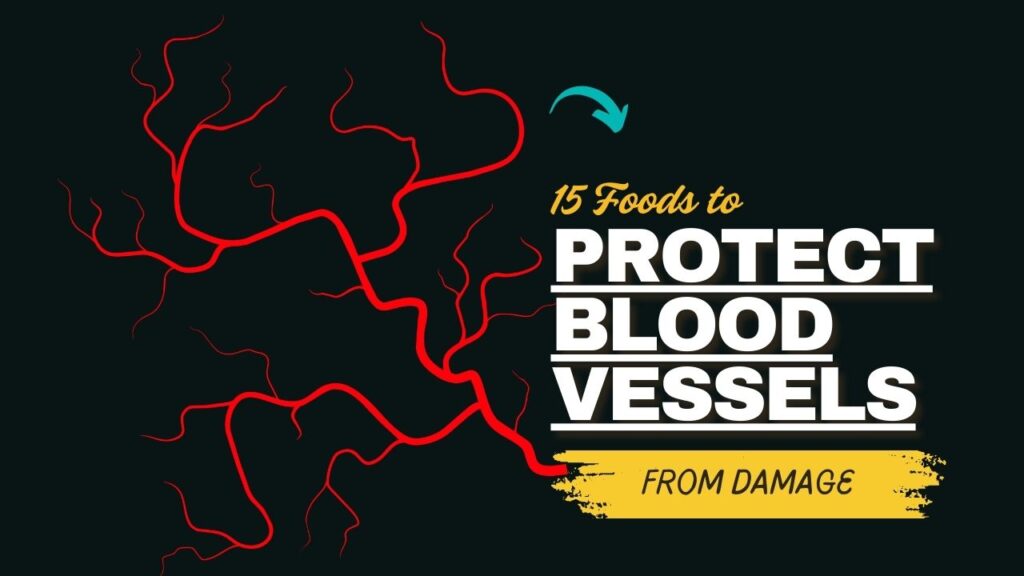
Table of Contents
15 Best Foods To Protect Blood Vessels
1. Fatty Fish (Salmon, Mackerel, Sardines)
Why it protects blood vessels:
Fatty fish are rich in omega-3 fatty acids, which reduce inflammation, lower blood pressure, and improve arterial function. Studies show that regular intake can significantly reduce the risk of plaque buildup in arteries.
Best Ways to Eat:
- Grilled or baked with herbs and olive oil
- In salads or sushi
- As a smoothie ingredient (smoked salmon flavor optional)
Tips to Maximize Absorption:
Pair with healthy fats like olive oil or avocado to enhance omega-3 absorption.
Who Should Eat / Avoid:
- Good for: heart patients, athletes, pregnant women
- Avoid if: allergic to fish, taking high-dose blood thinners (consult a doctor)
Storage & Buying Tips:
- Choose wild-caught fish for higher omega-3 content
- Store in the coldest part of the fridge and consume within 1–2 days
- Freeze for long-term storage
✅ Do: bake or grill, pair with vegetables
❌ Don’t: deep fry or overcook
Possible Side Effects:
High mercury content in certain fish; limit consumption of tuna and swordfish.
2. Berries (Blueberries, Strawberries, Raspberries)
Why it protects blood vessels:
Berries are loaded with antioxidants like flavonoids and anthocyanins. These compounds strengthen blood vessels, reduce inflammation, and prevent oxidative stress.
Interesting Fact:
A study found that people who eat a cup of blueberries daily for 8 weeks showed improved arterial flexibility.
Best Ways to Eat:
- Add to oatmeal or yogurt
- Blend into smoothies
- Eat fresh as a snack
Tips to Maximize Absorption:
Combine with a small amount of fat (e.g., nuts or seeds) for better absorption of antioxidants.
Who Should Eat / Avoid:
- Good for: diabetics (low glycemic index), children, older adults
- Avoid if: allergic to berries
Storage & Buying Tips:
- Pick firm, plump berries
- Store in fridge for up to 5 days
- Rinse just before eating
✅ Do: eat raw, combine with yogurt or nuts
❌ Don’t: add too much sugar
Possible Side Effects:
Excessive intake may cause mild digestive issues in sensitive individuals.
3. Leafy Greens (Spinach, Kale, Swiss Chard)
Why it protects blood vessels:
Leafy greens are packed with nitrates, which the body converts to nitric oxide. Nitric oxide relaxes blood vessels and improves blood flow.
Interesting Fact:
Nitric oxide not only supports heart health but can also improve exercise performance by enhancing oxygen delivery.
Best Ways to Eat:
- Raw in salads or smoothies
- Lightly sautéed with olive oil
- Added to soups and stews
Tips to Maximize Absorption:
Consume with vitamin C-rich foods (like lemon or bell peppers) to enhance iron and nitrate absorption.
Who Should Eat / Avoid:
- Good for: people with high blood pressure, athletes
- Avoid if: prone to kidney stones (high oxalate content)
Storage & Buying Tips:
- Choose vibrant, crisp leaves
- Store in the fridge wrapped in paper towel
- Wash thoroughly before use
✅ Do: eat raw or lightly cooked
❌ Don’t: overcook, store for too long
Possible Side Effects:
May interact with blood-thinning medications due to vitamin K content.
4. Nuts (Almonds, Walnuts, Pistachios)
Why it protects blood vessels:
Nuts contain healthy fats, fiber, and vitamin E, which help reduce cholesterol, improve endothelial function, and fight oxidative stress.
Best Ways to Eat:
- As a snack
- Added to cereals, salads, or desserts
- Ground into nut butter
Tips to Maximize Absorption:
Pair with fruits to create a balanced snack that boosts antioxidant benefits.
Who Should Eat / Avoid:
- Good for: heart patients, weight management (in moderation), pregnant women
- Avoid if: allergic to nuts
Storage & Buying Tips:
- Buy raw or dry-roasted without added salt
- Store in airtight containers in a cool, dry place
- Refrigerate for longer shelf life
✅ Do: eat raw or lightly roasted
❌ Don’t: consume salted or sugar-coated versions
Possible Side Effects:
Overconsumption may lead to weight gain or digestive discomfort.
5. Tomatoes
Why it protects blood vessels:
Tomatoes are rich in lycopene, a powerful antioxidant that strengthens blood vessels and prevents plaque buildup.
Interesting Fact:
Cooking tomatoes increases lycopene availability, making tomato sauce or roasted tomatoes even more beneficial.
Best Ways to Eat:
- Fresh in salads
- Cooked in sauces, soups, or stews
- Juiced
Tips to Maximize Absorption:
Pair with olive oil or avocado to enhance lycopene absorption.
Who Should Eat / Avoid:
- Good for: everyone, especially people with high cholesterol
- Avoid if: prone to acid reflux
Storage & Buying Tips:
- Choose firm, ripe tomatoes
- Store at room temperature to preserve flavor
- Refrigerate only if very ripe
✅ Do: cook with healthy oils, eat fresh
❌ Don’t: overcook or discard seeds (nutrients are concentrated there)
Possible Side Effects:
High acidity may trigger heartburn in sensitive individuals.
6. Garlic
Why it protects blood vessels:
Garlic contains allicin, which has anti-inflammatory and vasodilatory effects, improving blood flow and reducing blood pressure.
Best Ways to Eat:
- Raw in dressings or dips
- Lightly sautéed in olive oil
- Added to soups and sauces
Tips to Maximize Absorption:
Crush or chop garlic and let it sit for 10 minutes before cooking to maximize allicin formation.
Who Should Eat / Avoid:
- Good for: heart patients, immune support
- Avoid if: on blood-thinning medication without medical supervision
Storage & Buying Tips:
- Choose firm, unblemished bulbs
- Store in a cool, dry, ventilated place
- Avoid refrigeration as it can sprout
✅ Do: eat raw or lightly cooked
❌ Don’t: overcook
Possible Side Effects:
May cause digestive upset or strong odor.
7. Dark Chocolate (70% or Higher)
Why it protects blood vessels:
Dark chocolate contains flavanols, which improve endothelial function, reduce inflammation, and enhance blood flow.
Interesting Fact:
Moderate consumption of dark chocolate has been linked to lower risk of heart disease in multiple studies.
Best Ways to Eat:
- As a snack
- Melted over fruits
- Added to oatmeal or smoothies
Tips to Maximize Absorption:
Choose high-cocoa content chocolate with minimal sugar.
Who Should Eat / Avoid:
- Good for: adults, heart health enthusiasts
- Avoid if: diabetic or sensitive to caffeine
Storage & Buying Tips:
- Store in a cool, dry place
- Avoid direct sunlight
- Seal tightly to prevent moisture
✅ Do: eat in moderation
❌ Don’t: overconsume or choose low-cocoa varieties
Possible Side Effects:
Excess sugar or caffeine intake may affect blood sugar or sleep.
8. Avocado
Why it protects blood vessels:
Avocados are rich in monounsaturated fats, potassium, and vitamin E, which help lower bad cholesterol, reduce inflammation, and improve arterial function.
Interesting Fact:
Regular avocado consumption has been linked to lower risk of heart disease and improved endothelial function, which keeps blood vessels flexible.
Best Ways to Eat:
- Sliced in salads or sandwiches
- Mashed as guacamole
- Blended into smoothies
Tips to Maximize Absorption:
Pair with foods rich in carotenoids (like tomatoes or carrots) to enhance antioxidant absorption.
Who Should Eat / Avoid:
- Good for: heart patients, weight management, pregnant women
- Avoid if: allergic to avocados, prone to high-calorie diets
Storage & Buying Tips:
- Choose firm avocados with a slight give when pressed
- Store unripe avocados at room temperature to ripen
- Refrigerate ripe avocados to slow spoilage
✅ Do: eat fresh or in smoothies
❌ Don’t: overeat or fry in excess oil
Possible Side Effects:
Overconsumption may contribute to weight gain due to high-calorie content.
9. Olive Oil
Why it protects blood vessels:
Extra virgin olive oil is high in monounsaturated fats and polyphenols, which reduce inflammation, improve cholesterol levels, and prevent arterial plaque formation.
Best Ways to Eat:
- Drizzle over salads or roasted vegetables
- Use for light sautéing
- Add to dips and dressings
Tips to Maximize Absorption:
Use raw or lightly heated to preserve antioxidants and healthy fats.
Who Should Eat / Avoid:
- Good for: everyone, especially those with high cholesterol or heart risk
- Avoid if: allergic to olives
Storage & Buying Tips:
- Buy dark glass bottles to protect from light
- Store in a cool, dark place
- Use within 3–6 months of opening
✅ Do: use raw for salads, moderate cooking
❌ Don’t: overheat or use in deep frying
Possible Side Effects:
High-calorie content may contribute to weight gain if consumed excessively.
10. Oats
Why it protects blood vessels:
Oats are rich in soluble fiber (beta-glucan), which helps lower LDL cholesterol and stabilize blood sugar, reducing strain on blood vessels.
Best Ways to Eat:
- Cooked as oatmeal
- Added to smoothies or baked goods
- Sprinkled on yogurt
Tips to Maximize Absorption:
Combine with fruits or nuts to boost antioxidant and nutrient intake.
Who Should Eat / Avoid:
- Good for: diabetics, people with high cholesterol, weight-loss seekers
- Avoid if: gluten-sensitive (unless using certified gluten-free oats)
Storage & Buying Tips:
- Store in airtight containers in a cool, dry place
- Keep away from moisture to prevent mold
✅ Do: cook or soak before eating
❌ Don’t: consume instant flavored oats high in sugar
Possible Side Effects:
May cause bloating in some individuals due to high fiber content.
11. Green Tea
Why it protects blood vessels:
Green tea contains catechins, antioxidants that improve endothelial function, lower LDL cholesterol, and enhance arterial flexibility.
Interesting Fact:
Drinking green tea regularly has been associated with lower risk of heart attack and stroke.
Best Ways to Eat:
- Brew hot or iced
- Add lemon or mint for flavor
- Use as a base for smoothies
Tips to Maximize Absorption:
Drink on an empty stomach for maximum catechin absorption but avoid late at night due to caffeine.
Who Should Eat / Avoid:
- Good for: adults seeking heart health, weight management
- Avoid if: sensitive to caffeine or pregnant women (limit intake)
Storage & Buying Tips:
- Store in airtight containers away from light and heat
- Use fresh within 6 months for best flavor
✅ Do: brew fresh, combine with lemon
❌ Don’t: overbrew or add sugar
Possible Side Effects:
Excess caffeine may cause insomnia or jitteriness.
12. Citrus Fruits (Oranges, Lemons, Grapefruits)
Why it protects blood vessels:
Citrus fruits are high in vitamin C and flavonoids, which strengthen blood vessels, reduce inflammation, and prevent arterial stiffness.
Interesting Fact:
Regular intake of citrus fruits has been linked to a lower risk of stroke and heart disease.
Best Ways to Eat:
- Fresh as snacks
- In smoothies or salads
- Juice (preferably freshly squeezed)
Tips to Maximize Absorption:
Pair with iron-rich foods like spinach to enhance iron absorption.
Who Should Eat / Avoid:
- Good for: everyone, especially those with cardiovascular risk
- Avoid if: prone to acid reflux or citrus allergies
Storage & Buying Tips:
- Choose firm, heavy fruits with smooth skin
- Store at room temperature or refrigerate for longer shelf life
✅ Do: eat fresh or juice
❌ Don’t: consume excessively concentrated juices
Possible Side Effects:
Excess intake may cause acid reflux or tooth enamel erosion.
13. Pomegranate
Why it protects blood vessels:
Pomegranates contain polyphenols and antioxidants that reduce arterial plaque buildup, lower blood pressure, and improve endothelial function.
Best Ways to Eat:
- Fresh seeds in salads or yogurt
- Juice (unsweetened)
- Added to smoothies
Tips to Maximize Absorption:
Consume with a small amount of fat to enhance antioxidant absorption.
Who Should Eat / Avoid:
- Good for: adults, heart patients, diabetics (in moderation)
- Avoid if: allergic to pomegranates
Storage & Buying Tips:
- Store whole fruits at room temperature or refrigerate
- Keep seeds refrigerated for up to 5 days
✅ Do: eat fresh or juice
❌ Don’t: add sugar or consume in excess
Possible Side Effects:
May interact with certain medications (e.g., blood thinners).
14. Beets
Why it protects blood vessels:
Beets are rich in nitrates, which the body converts to nitric oxide to relax blood vessels and improve blood flow.
Interesting Fact:
Beet juice has been shown to improve exercise performance and lower blood pressure naturally.
Best Ways to Eat:
- Roasted or steamed as a side dish
- Blended into smoothies or soups
- Pickled
Tips to Maximize Absorption:
Pair with vitamin C-rich foods to improve nitrate utilization.
Who Should Eat / Avoid:
- Good for: athletes, hypertensive patients
- Avoid if: prone to kidney stones (high oxalate content)
Storage & Buying Tips:
- Store in a cool, dark place or fridge
- Remove greens before storage for longer shelf life
✅ Do: roast or juice fresh
❌ Don’t: overcook or boil for long periods
Possible Side Effects:
May cause beet-colored urine or stools; generally harmless.
15. Red Bell Peppers
Why it protects blood vessels:
Red bell peppers are high in vitamin C, carotenoids, and antioxidants, which strengthen blood vessels, reduce inflammation, and prevent plaque formation.
Best Ways to Eat:
- Raw in salads or dips
- Stir-fried or roasted
- Added to soups and stews
Tips to Maximize Absorption:
Pair with healthy fats like olive oil or avocado to enhance carotenoid absorption.
Who Should Eat / Avoid:
- Good for: everyone, especially people with cardiovascular risk
- Avoid if: allergic to bell peppers
Storage & Buying Tips:
- Choose firm, brightly colored peppers
- Store in fridge crisper drawer for up to 1 week
- Wash before use
✅ Do: eat raw or lightly cooked
❌ Don’t: overcook or leave at room temperature too long
Possible Side Effects:
Rarely, may cause digestive discomfort in sensitive individuals.
Conclusion
Protecting your blood vessels doesn’t have to be complicated. Incorporating these 15 foods into your daily diet can strengthen your arteries, reduce inflammation, and improve overall cardiovascular health.
Start small—add berries to your breakfast, a handful of nuts as a snack, and a salad with leafy greens for lunch.
Try adding one or two of these foods to your next meal and notice how your energy and well-being improve. Share your favorite recipe with these blood-vessel-friendly foods in the comments!
Frequently Asked Questions (FAQs)
Why is it important to protect blood vessels?
Blood vessels carry oxygen and nutrients to every part of your body. Protecting them helps prevent high blood pressure, heart disease, stroke, and other cardiovascular issues. Healthy vessels also improve circulation and overall energy levels.
Can diet alone protect blood vessels?
While diet plays a major role, other factors like regular exercise, avoiding smoking, managing stress, and controlling blood sugar and cholesterol are also essential for optimal blood vessel health.
How often should I eat these 15 foods?
Including a variety of these foods daily or several times a week can be very beneficial. For example, nuts or berries can be eaten daily in moderate amounts, while fatty fish is recommended 2–3 times per week.
Are supplements as effective as whole foods for blood vessel health?
Whole foods provide a combination of vitamins, minerals, and antioxidants that work together, which is often more effective than isolated supplements. Supplements may help in deficiency cases but cannot fully replace nutrient-rich foods.
Can these foods lower high blood pressure?
Yes, many of these foods—like leafy greens, fatty fish, and beets—contain compounds that naturally help relax blood vessels and reduce blood pressure. However, they should complement prescribed treatments if you have hypertension.
Can children eat these foods too?
Yes, most of these foods are safe and beneficial for children, helping with heart and overall health. Avoid honey for children under one year and adjust portion sizes for nuts to prevent choking hazards.
Should pregnant women eat these foods?
Many of these foods are safe and nutritious during pregnancy, such as berries, leafy greens, and fatty fish (low-mercury options). Always consult a doctor regarding supplements or high-mercury fish.
Can these foods reverse blood vessel damage?
While they can improve blood vessel function and reduce further damage, severe damage or advanced cardiovascular conditions may require medical treatment. These foods are most effective for prevention and maintenance.
How should I combine these foods for best results?
Pair foods for enhanced absorption and benefits, e.g., tomatoes with olive oil for lycopene absorption, or berries with nuts for antioxidant synergy. Variety is key to covering multiple protective compounds.
